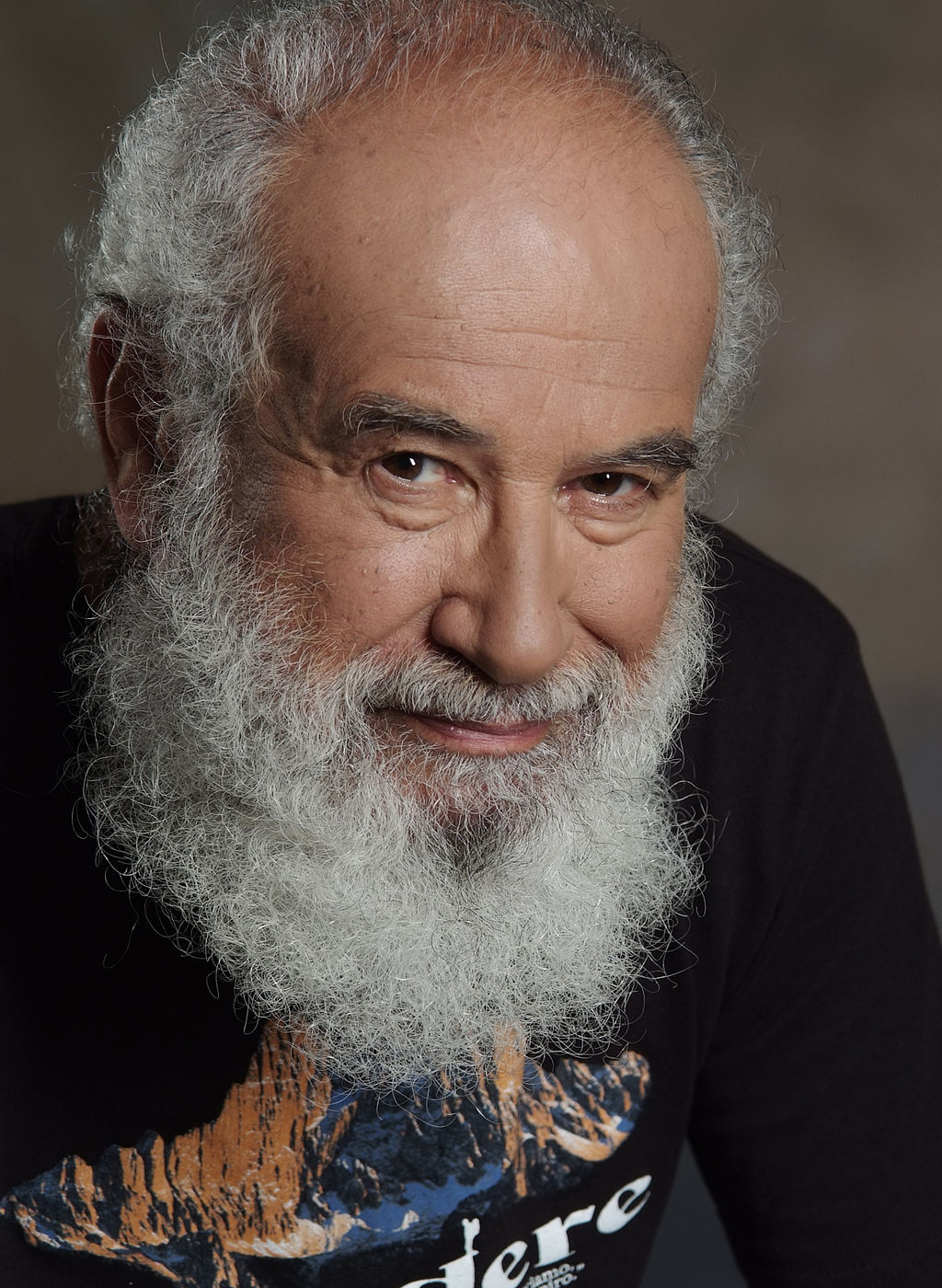
Figure 1: Dov Frohman-Bentchkowsky
Source: Wikimedia Commons (no date)
Downloadable teaching resource
Overview
An Israeli electrical engineer best known for inventing the erasable programmable read-only memory (EPROM), a key innovation that influenced the development of flash memory.
Background
Born in 1939 in Amsterdam, Netherlands, Dov Frohman survived World War II as a hidden child. After the war he was transferred to an orphanage in Belgium, then to France, and from Marseille in 1949 he arrived in Israel. Following his fascination with electrons, he studied electrical engineering at the Technion–Israel Institute of Technology and completed his PhD at the University of California, Berkeley. After a stint at Fairchild Semiconductor, he joined Intel in 1969. Frohman became renowned for developing the Electrically Programmable Read-Only Memory (EPROM) and went on to establish Intel Israel, playing a critical role in the growth of high-tech industry in Israel (Computer History Museum, 2009).
Contributions
Dr. Frohman’s most significant contributions include inventing the EPROM during his time at Intel, which revolutionised computer memory by allowing memory chips to be electrically reprogrammed and erased. The EPROM was one of Intel’s most profitable products and laid the ground work for Flash Memory. Additionally, he played an instrumental role in establishing Intel’s presence in Israel, laying the foundation for one of the country's most significant high-tech industries. His leadership at Intel Israel catalysed innovation and entrepreneurial growth in the region (Computer History Museum, no date).

Figure 2: Noah’s Ark Initiative kindergarten
(Intel Retiree Organization, no date)
Frohman also pursued significant endeavours in education. In 1973, he taught electrical engineering at the University of Kumasi in Ghana. He engaged students in practical projects, notably designing and installing a functioning traffic light system on campus using components sourced from his international contacts (Computer History Museum, 2009). Furthermore, he founded the Noah’s Ark Initiative to pioneer ‘lighthouse kindergartens’ that foster coping skills, critical thinking, creativity, and community dialogue in disadvantaged neighbourhoods. Working with education entrepreneur Ran Cohen Harounoff, he aims to create an open-source global network of innovative early childhood programs, starting locally and expanding worldwide (Intel Retiree Organization, no date).
Feature: EPROM
The Electrically Programmable Read-Only Memory, invented by Frohman in 1971, fundamentally changed memory technology. An EPROM chip consists of an array of floating gate transistors, each capable of storing charge to represent binary data. By applying a high voltage, users could program these transistors, and data could be erased by exposure to ultraviolet light, allowing reusability. EPROM enabled flexible firmware updates and prototyping in computing, becoming a crucial component in embedded systems development throughout the late 20th century (The CPUShack, 2006; National Inventors Hall of Fame, no date).
Optional activity
Visit xtronics.com to explore how EPROMs work. Simulate programming and erasing chips or learn how light and voltage manipulate data storage at a hardware level.
Watch
In this video Frohman explains his views on the educational paradigm shift that should take place in order to overcome a possible decline in population growth.
Video 1: The Conversation - Dov Frohman (Maize Magazine, 2018)
Transcript
I don't think we should have be afraid of AI because AI will not really overtake humans memory and chip complexity is about a hundred thousand times away from the number of synapses that the brain has so it will take at least 30 to 50 years - if we can do it - to get there.
Hey I cannot really do anything almost that the subconscious can do so I don't think we have to worry about AI from that respect but clearly AI and automation will have an effect on jobs and the whole economy will have to change. I think the the big problem is really not so much the automation but the fact that in 30 to 50 years we'll get to a wall of no growth and once the grow stops or even slows down considerably everything is going to change because we won't be able to do these things we can do today as soon as growth stops and I believe it has to stop for many many reasons we'll be at a wall and that's why I think that we have to do a lot about education of the kindergarten kids because they're going to be the one in 30 to 40 years 50 years that are going to be encountering this wall and they have to be very creative very imaginative.
They have to be problem solvers they have to do to be everything that today may be a very small percentage the percentage of people can do what is happening is that it will require as I said the revolution in education and we have to start move from educating knowledge from teaching knowledge and to promoting and nurturing breakthrough thinking imagination problem-solving the kinds of things that are essential when there is a big a major change which is really in a way a revolution and that revolution requires it's a revolution in our thinking and the way we teach.
We will move from teaching to learning so the parents have to be part of that revolution and that means that you know they they get used to their children they were in a generation where they were taught and now they have to get used to their children learning and that's a major breakthrough.
See also
Frohman reflects on innovation, leadership and resilience in an interview at the Computer History Museum (2009).
His 2008 book Leadership the Hard Way blends personal narrative and management philosophy with lessons from his time at Intel.
References and further reading
Computer History Museum (no date) Dov Frohman-Bentchkowsky. Available at: https://computerhistory.org/profile/dov-frohman-bentchkowsky (Accessed: 13 July 2025)
Computer History Museum (2009) Oral History of Dov Frohman. Available at: https://archive.computerhistory.org/resources/text/Oral_History/Frohman_Dov/102702214.05.01.acc.pdf (Accessed: 13 July 2025)
Frohman, D. et al. (2008) Leadership the hard way: why leadership can't be taught and how you can learn it anyway. (1st ed.). San Francisco: Graffiti Pers.
Intel Retiree Organization (no date) Dov Frohman: Life After Intel. Available at: https://intelretiree.com/wp-content/uploads/2016/03/Dov-Frohman-LAI.pdf (Accessed: 13 July 2025)
Maital, S. (2016) Holocaust survivor and Intel Israel founder reflects on turning adversity into opportunity. Available at: https://www.jpost.com/jerusalem-report/survival-lessons-450971 (Accessed: 13 July 2025)
Maize Magazine (2018) Nothing to Fear: No Growth, AI and Education. Available at: https://www.maize.io/cultural-factory/nothing-to-fear-no-growth-ai-and-education (Accessed: 13 July 2025)
National Inventors Hall of Fame (no date) Dov Frohman-Bentchkowsky. Available at: https://www.invent.org/inductees/dov-frohman-bentchkowsky (Accessed: 13 July 2025)
The CPUShack (2006) EPROM. Available at: https://www.cpushack.com/EPROM.html (Accessed: 15 August 2025)
Wikimedia Commons (no date) 500px-Dov_Frohman.jpg. Available at: https://upload.wikimedia.org/wikipedia/commons/thumb/6/65/Dov_Frohman.jpg/500px-Dov_Frohman.jpg (Accessed: 13 July 2025)
XTronics (no date) How EPROMs Work. Available at: https://xtronics.com/wiki/How_EPROMS_Work.html (Accessed: 13 July 2025)